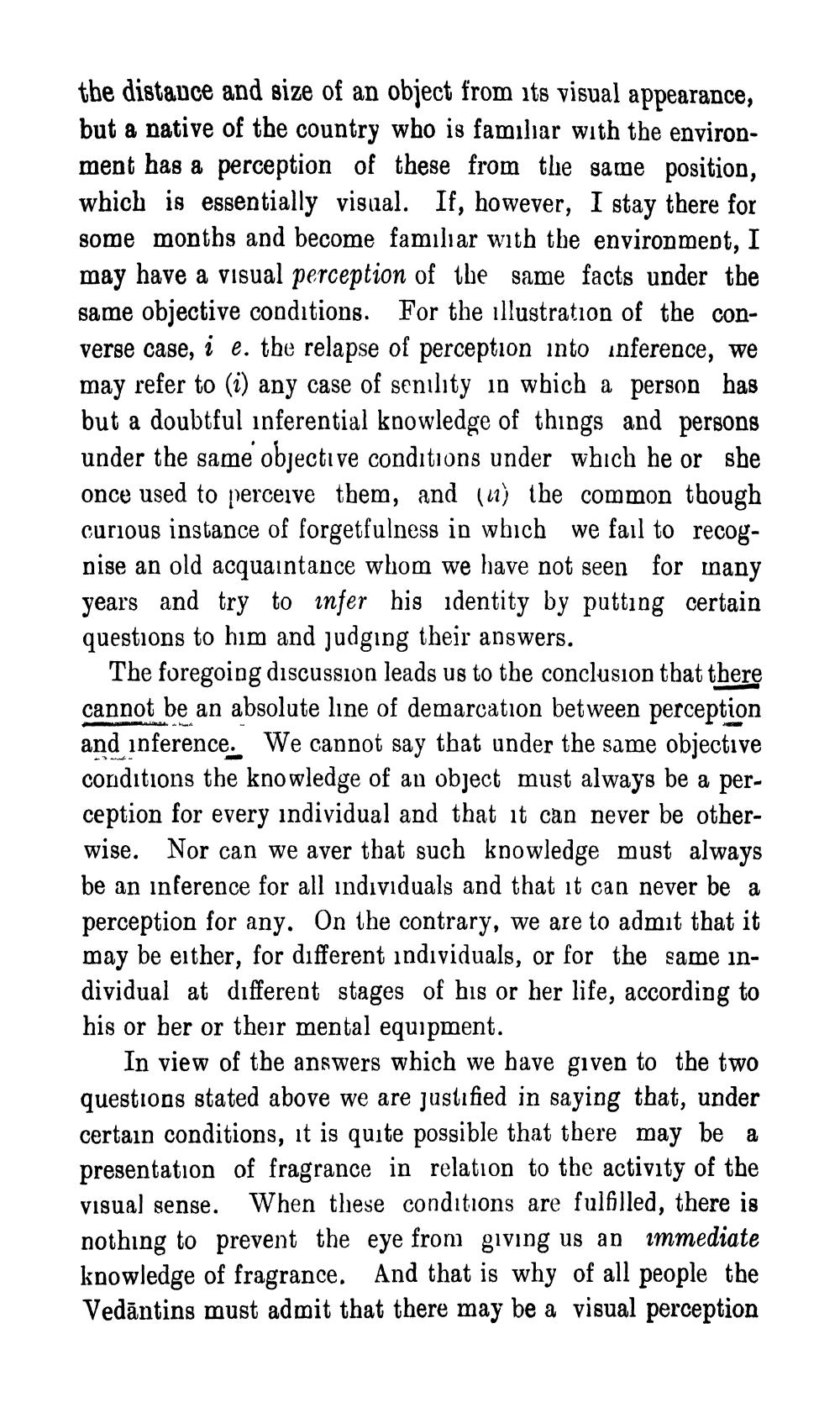________________
the distance and size of an object from its visual appearance, but a native of the country who is familiar with the environment has a perception of these from the same position, which is essentially visual. If, however, I stay there for some months and become familiar with the environment, I may have a visual perception of the same facts under the same objective conditions. For the illustration of the converse case, i e. the relapse of perception into inference, we may refer to (i) any case of senility in wbich a person has but a doubtful inferential knowledge of things and persons under the same objective conditions under which he or she once used to perceive them, and (c) the common though curious instance of forgetfulness in which we fail to recognise an old acquaintance whom we have not seen for many years and try to infer his identity by putting certain questions to him and judging their answers.
The foregoing discussion leads us to the conclusion that there cannot be an absolute line of demarcation between perception and inference. We cannot say that under the same objective conditions the knowledge of an object must always be a perception for every individual and that it can never be otherwise. Nor can we aver that such knowledge must always be an inference for all individuals and that it can never be a perception for any. On the contrary, we are to admit that it may be either, for different individuals, or for the same individual at different stages of his or her life, according to his or her or their mental equipment.
In view of the answers which we have given to the two questions stated above we are justified in saying that, under certain conditions, it is quite possible that there may be a presentation of fragrance in relation to the activity of the visual sense. When these conditions are fulfilled, there is nothing to prevent the eye from giving us an immediate knowledge of fragrance. And that is why of all people the Vedāntins must admit that there may be a visual perception




